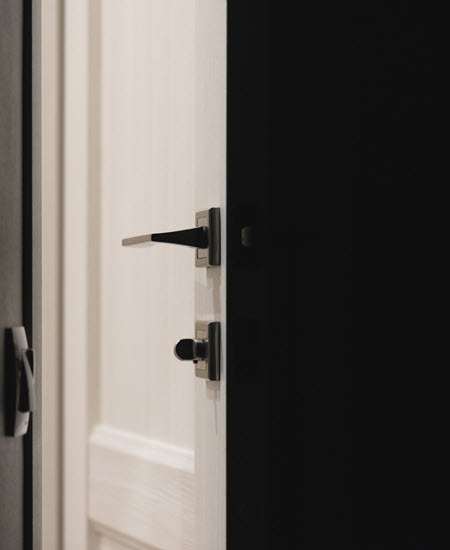 The same question keeps popping up.
The same question keeps popping up.
There’s a question that you frequently ask yourself. You are haunted by it, plagued by it, and can never seem to let it go. Nothing ever feels like it’s enough to protect you or your loved ones no matter what you do.
You spend all your energy trying things that will ease your mind and help you rest. Instead, you live with constant anxiety, worry, and fear.
That question is, “what if?” It is always followed by a “let me do ______, just to make sure it doesn’t happen.”
Some examples include: What if he has lost interest in me and is unhappy in the relationship? Let me ask him multiple times during the week if he still loves me, how much, and why he wants to be with me.
What if she is cheating with that coworker about whom she talks? Let me check her phone, messages, and emails regularly to make sure she is not lying.
What if I wake up and he is lying dead next to me? Let me check to make sure he is still breathing multiple times throughout the night.
What if I left the door unlocked and someone breaks in? Let me go back and check multiple times.
 Closet causes Lake* anguish.
Closet causes Lake* anguish.
Lake is 13 years old and is going on his first camping trip tomorrow morning. He goes to the restroom to wash up, heads downstairs for a glass of water, and makes his way back to his bedroom to get ready for bed.
His mother comes in to wish him goodnight, puts his glass of water on the side table, notices his closet door is open, and closes it for him on her way out of his room.
A thought pops into his head, “If that closet door isn’t completely closed, something terrible could happen to me, like dying or something.”
He tells himself this thought is crazy, yet the possibility riddles him with fear. He turns on his light, grabs his baseball bat for safety, opens the door, and closes it securely. He turns to lie down on his bed, but he feels an urge to make sure that the door is genuinely closed before he does.
Lake tells himself he can’t risk it. Better recheck the door. He hears his father yelling from down the hall, asking about all the noise.
Lake panics. Telling the truth is not an option because it will sound too crazy. He keeps checking the door for fear that he may die. Holding the tension of fearing for his life and not wanting to appear absurd to his family causes a sinking feeling in Lake’s stomach. His chest tightens, his breathing becomes shallow; he feels afraid and completely alone.
Lake tries to pull it together while telling himself that he will open and close the door one last time, quietly, to be sure, sure, sure that it is locked. He heads to the bed, puts his baseball bat aside, gets under the covers, closes his eyes, and lays in bed wide awake with a big fat “what if…” floating through his mind.
Lake knows he will not be getting much sleep tonight. He wishes he could live in a house with no closets. Tomorrow he can rest easy because he is going camping where there are no closets.
“I wonder if they make houses that don’t have closets?” Thoughts of the closet haunt Lake, causing him to be annoyed that he can’t let go of this thought. He tells himself this is crazy. He knows that the likelihood of someone getting in his closet without him noticing is by now nearly zero. But WHAT IF?
Fighting uncertainty is a losing battle.
OCD is an endless battle with “What if” questions. Even after you have doubled or tripled your efforts to reduce the threat to almost zero, the battle continues.
Your ritualistic behaviors to avoid the threat can NEVER reduce it to absolute zero… because there is no such thing as 100% certainty on planet earth. Your mind knows this, but your feelings will never let it go, so they will never let you rest.
Relaxation and satisfaction come in minimal amounts after performing the ritual (i.e., checking emails to make sure they aren’t cheating or checking the door to make sure it is unlocked). But the reality of uncertainty is relentless, so you are back to square one.
A new day brings new endless possibilities, and the battle begins all over again. The walls around your life are closing in, and space for you to be comfortable keeps getting smaller and smaller.
 Therapy helps uncertainty be more comfortable.
Therapy helps uncertainty be more comfortable.
Continually stressing over uncertainty is exacting a cost on your way of life. A lot of time, a lot of mental space, a lot of energy, perhaps a lot of money have likely damaged your relationships.
You are tired of this way of being and are ready to take back your time, energy, and mental space.
Exposure Response Prevention (ERP) and Cognitive-Behavioral strategies train you in how to stand up to uncertainty. We want you to feel an increased sense of freedom and engagement with the world, imperfect and uncertain as it is.
In a warm and empathic relationship with your therapist, you can gain coping tools and skills to use in the event of an undesired outcome.
Learn to navigate uncertainty in the world.
If you are ready to learn how to navigate an uncertain world better, call (917) 268-9213.
Your fuller life awaits.
*Name changed to preserve client confidentiality.

